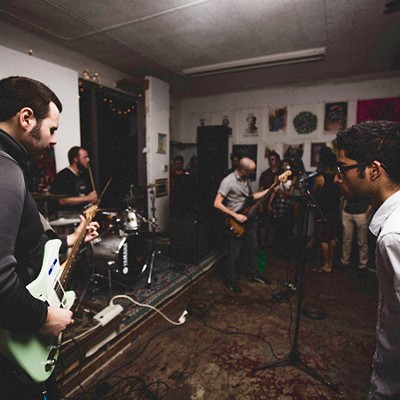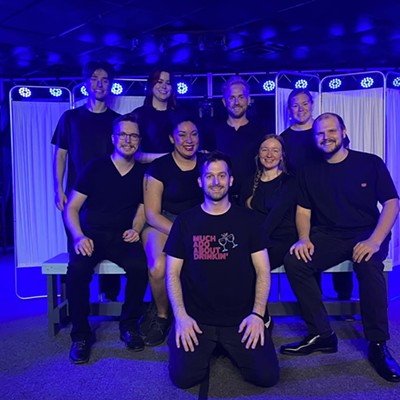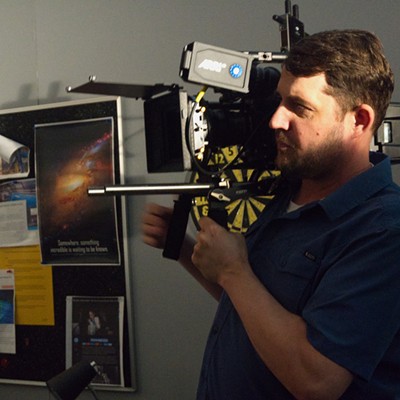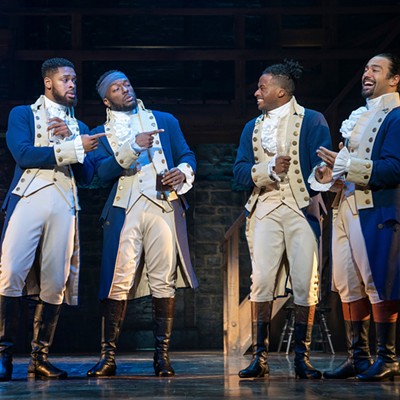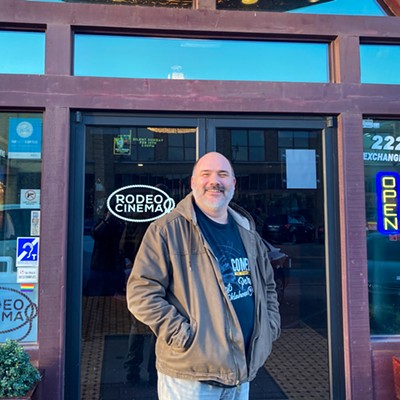etnam War; book smuggling into East Berlin with fellow poets; squatting in abandoned buildings as part of an Italian protest movement; and representing the Southern Cheyenne Nation at the European Free Alliance in the Netherlands, and at the United Nations Indigenous Peoples Conference in Geneva.
"Poetry is a discipline I am still trying to acquire," Henson said. "It seems, as a poet, I am doing as the Tenzo Head Chef of a Zen monastery says, 'cooking my life.' What rises to the top or becomes otherwise cooked is the poem itself."
Henson will give a reading of his poetry Saturday at IAO, at the opening reception for "Out of Sight," an interactive and touchable art exhibit to raise awareness about living with visual impairment. At 7:30 p.m. Wednesday, Oct. 21, he will be the featured poet at the Home for Wayward Poets' open reading at Sauced, 2912 Paseo.
TRIBAL ROOTS
He began his career as a student at the Oklahoma College of Liberal Arts, now the University of Science and Arts Oklahoma in Chickasha, with the publication of his first book, "Keeper of Arrows." The text paid homage to his grandparents and his tribal roots.
"The poems in that thin volume were mirroring Cheyenne song," Henson said. "My work has deviated little from this initial credo, though they have found influences in places as remote as head hunting villages in Papua, New Guinea; bandit towns such as Orgosolo in Sardinia; and the good fortune of meeting and reading with the poets I read and admired as a student."
Henson's travels initially began after an invitation from translator Franco Meli from Iulm University of Milan, after Norman's Point Riders Press published his "Another Song For America." Henson said that a translation of the book was very successful and led to a lecturing gig at the university. More books followed, all widely translated, and he settled on the continent.
"I, like many Native writers for my generation, found difficulty finding poets whose poetry spoke directly to us," he said. "It was the poets outside of America that addressed issues I could comprehend "? words and metaphoric responses to genocide, ethnocide and human resistance to inhumanity."
EXPERIMENTAL MOVEMENTS
Henson said that he became more intrigued with social experiment movements like the "Social Centri," which protested the Italian government by squatting in abandoned buildings and then feeding and caring for immigrants and the homeless.
"I began to read and record in these alternative arenas," he said. "It was clear to me that my poetry was suited for this kind of social experimentation. Through a meeting with the Swedish poet Thomas Transtromer, I became involved in the experimental 'Dream Theater of Europe,' a movement focused on hermetic, Earth-oriented concepts in the fields of creativity."
In the late 1970s, Henson said Ivar Ivask, the editor of Norman journal World Literature Today, had smuggled 12 copies of Henson's book "Naming the Dark" into Russia. In 1991, before the fall of the Berlin Wall, Henson accompanied a German journalist into East Berlin to deliver books to Hofstra University.
And as far as the foundation of IAO, he said that he is proud that the organization still stands 30 years later and has managed to grow and fill a need in the Oklahoma art and poetry community. According to Henson, IAO had formed because of political and personal differences with the Oklahoma Arts Council that made a new outlet for more controversial ideas a "necessity."
"We desired to offer an alternative, more open forum for our work," he said. "This was a time when poetry and the arts in the Oklahoma public schools were being redefined by people most of us didn't trust. So, we gathered and began IAO. To see IAO flourish is a dream realized."
Out of Sight opens at 6 p.m. Saturday with an opening reception and displays though Nov. 7 at Individual Artists of Oklahoma Gallery, 706 W. Sheridan.
"?Charles Martin

